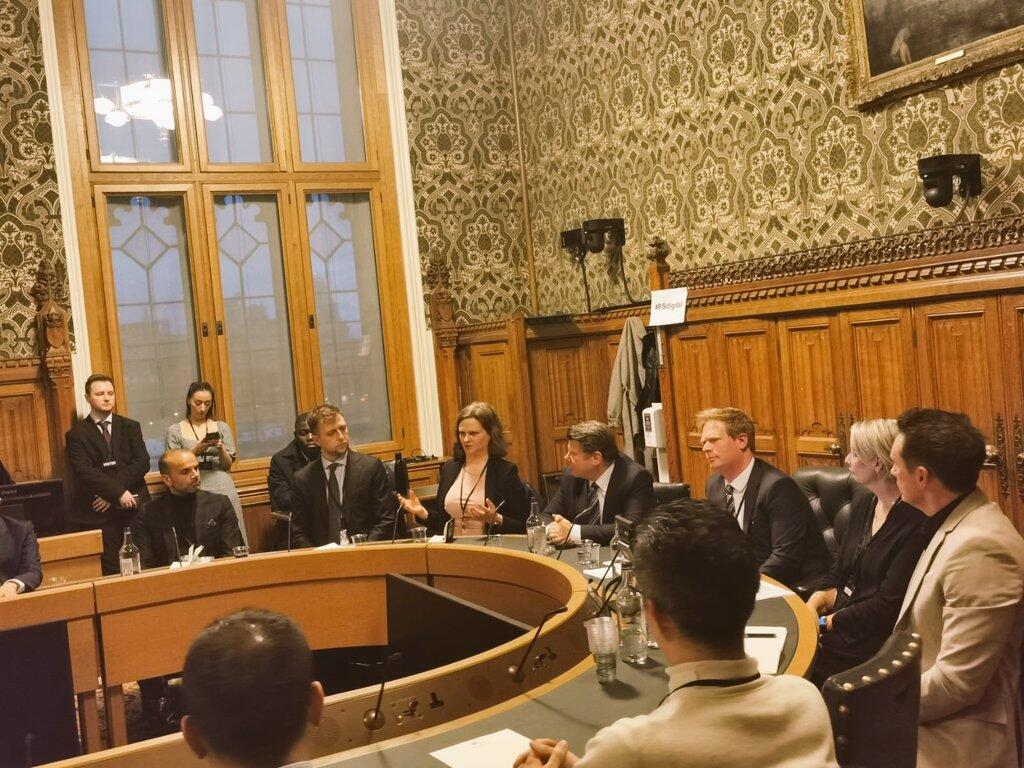UK technology industry leaders have called for greater collaboration between businesses and the government to tackle the UK’s chronic digital skills crisis.
Speaking at the Parliament Street digital skills summit on Tuesday night, which was hosted by Dean Russell MP for Watford and chaired by Steven George-Hilley of Centropy PR, a panel of technology experts debated how to address the challenges posed by the country’s digital skills shortfall. Issues explored by the panel and audience members included examining how data-led insights, better training and support and collaboration between businesses, schools, universities, and the government can help close the digital divide.
Discussing the use of data to improve digital skills, Kate Hawthorn, Director Consultant Talent, FDM Group, said, “Our staff experience is driven by millions of data points and that’s been one of the biggest developments in the past three years, that’s been an enormous step forward for us.”
Hawthorn added, “Technology should drive business and innovation, but also social change. We are seeing the rate of innovation that we would’ve seen in a decade during the pandemic and that’s brought the skills gap into focus.”
More from News
- Reddit Will Now Have Age Verification Checks For Users In The UK
- Expert Advice On How To Stay Ahead Of Job Market Amid Layoffs
- How Meta Is Helping The UK Government With Public Services
- Recent Studies Show The Mental Health Risks Of AI Therapy Choices
- How Did A Fake AI-Generated Band Fool Thousands Of Listeners?
- What Influences Bitcoin Prices And Fluctuations?
- World’s First AI Chef To Come This September. Here’s How It Works
- Microsoft Who? Nvidia Has Officially Become the First Company to Surpass a $4 Trillion Market Cap
“Businesses must take a long-term view of bridging the skills divide. Making investments in employees developing skills and enablement is beneficial for all in the long run,” said Sachin Agrawal, Head of UK, Zoho.
Former Meta chief Derren Sequeira, who has overseen schools and outreach programmes for the company said, “We should lean on businesses and big tech companies more as a resource to inform education. Big tech companies should also improve aspects such as offering entry level opportunities.”
This theme was echoed by Elizabeth Anderson, COO of The Digital Poverty Alliance, “Businesses, government, schools, charities must altogether try to address the growing gap of digital skills. Responsibility does not fall down to either or but must come from all aspects of society to tackle the issues.”
Dean Russell MP for Watford said, “Technology needs to wrap around people, not the other way around. There really is a risk of a hidden society that don’t have access to tech.”
While John Kirk, Chief Strategy Officer, ITG added, “Discussing and experiencing things can be the best way of learning. Demystifying and immersing is the best route forward to tackle confidence issues within the use of tech.”
Whereas marketing entrepreneur Alfie Dawson, CEO, Bordeaux & Burgundy added, “There’s a role that PE and VC firms can play in the incentives that startups have. Smaller companies have an issue with talent pipelines, how long can you wait to train staff to do what’s needed to grow the business.”



